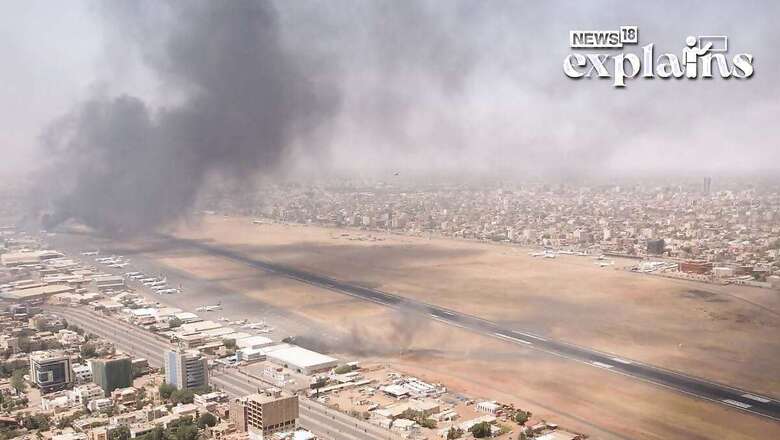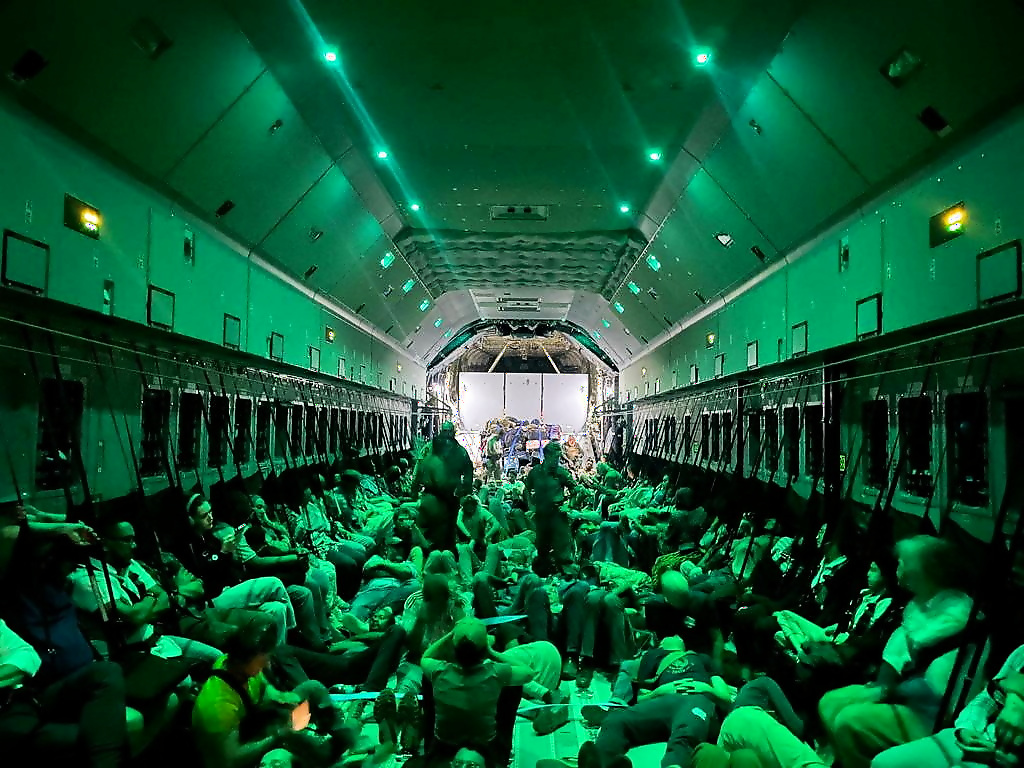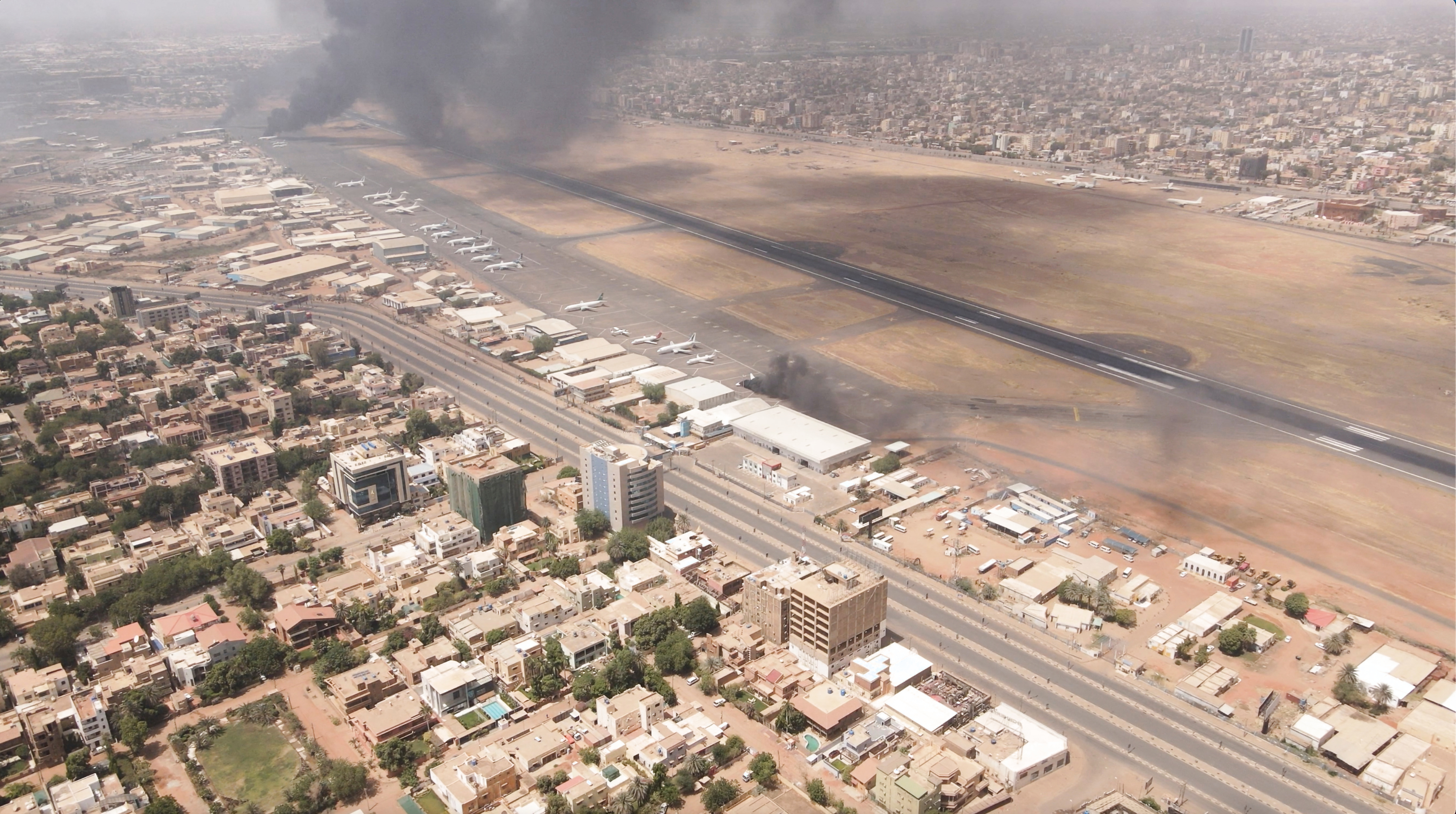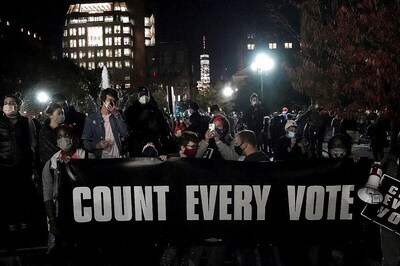
views
France has evacuated some Indians along with citizens of 27 other countries as part of its evacuation mission from violence-hit Sudan. The French embassy in New Delhi said on Monday that 388 people from 28 countries, including India, were evacuated.
“French evacuation operations are underway. Last night, two military flight rotations evacuated 388 people of 28 countries, including Indian nationals,” it tweeted. The number of Indians evacuated by France is not immediately known. On Sunday, Saudi Arabia said it has evacuated from Sudan 66 citizens from “brotherly and friendly” foreign countries that included a few Indian nationals.
People familiar with the matter said in New Delhi that Saudi Arabia evacuated three Indians, who were part of the crew of a Saudi flight and stuck in Sudanese capital Khartoum. Sudan has been witnessing deadly fighting between the country’s army and a paramilitary group for the last 11 days that has reportedly left around 400 people dead.
India has already positioned two heavy-lift military transport aircraft in the Saudi Arabian city of Jeddah and a naval ship at a key port in violence-hit Sudan as part of its contingency plans to evacuate the stranded Indians from that country. The government on Friday said it was focusing on the safety of over 3,000 Indian citizens presently located throughout Sudan.

But what is happening in Sudan? Explained in 5 Points
1) What Sparked It?
The fighting started on April 15 in the already poverty-stricken African nation with a history of military coups, sparking fears of a deeper descent into bloodshed and a wider humanitarian crisis.
The fighting broke out between forces loyal to army chief Abdel Fattah al-Burhan and his deputy turned rival Mohamed Hamdan Daglo, who commands the powerful paramilitary Rapid Support Forces (RSF).
The military toppled Bashir in April 2019 following mass citizen protests. The two generals seized power in a 2021 coup, but later fell out in a bitter power struggle, most recently centred on the planned integration of the RSF into the regular army.
Across the capital city of five million, roaming army and paramilitary troops have fought ferocious street battles, with the sky often blackened by fires in bombed buildings and looted shops.
Life in war-torn Khartoum is “burdened with anxiety and exhaustion,” resident Tagreed Abdin, an architect told AFP. “There was a rocket strike in our neighbourhood a few doors down from us … It is like nowhere is safe.”
2) Tensions Rising
Tension had been building for months between Sudan’s army and the paramilitary Rapid Support Forces (RSF). The friction was brought to a head by an internationally-backed plan to launch a new transition with civilian parties. A final deal was due to be signed earlier in April, on the fourth anniversary of the overthrow of long-ruling autocrat Omar al-Bashir in a popular uprising, Reuters said in its report.

Both the army and the RSF were required to cede power under the plan and two issues proved particularly contentious: one was the timetable for the RSF to be integrated into the regular armed forces, and the second was when the army would be formally placed under civilian oversight. When fighting broke out on April 15, both sides blamed the other for provoking the violence. The army accused the RSF of illegal mobilisation in preceding days and the RSF, as it moved on key strategic sites in Khartoum, said the army had tried to seize full power in a plot with Bashir loyalists.
3) The Main Players
The protagonists in the power struggle are General Abdel Fattah al-Burhan, head of the army and leader of Sudan’s ruling council since 2019, and his deputy on the council, RSF leader General Mohamed Hamdan Dagalo, commonly known as Hemedti.
As the plan for a new transition developed, Hemedti aligned himself more closely with civilian parties from a coalition, the Forces for Freedom and Change (FFC), that shared power with the military between Bashir’s overthrow and the 2021 coup, Reuters reported.
Diplomats and analysts said this was part of a strategy by Hemedti to transform himself into a statesman. Both the FFC and Hemedti, who grew wealthy through gold mining and other ventures, stressed the need to sideline Islamist-leaning Bashir loyalists and veterans who had regained a foothold following the coup and have deep roots in the army.
Along with some pro-army rebel factions that benefited from a 2020 peace deal, the Bashir loyalists opposed the deal for a new transition.
4) What’s at Stake?
The popular uprising had raised hopes that Sudan and its population of 46 million could emerge from decades of autocracy, internal conflict and economic isolation under Bashir.
The current fighting could not only destroy those hopes but destabilise a volatile region bordering the Sahel, the Red Sea and the Horn of Africa.

It could also play into competition for influence in the region between Russia and the United States, and between regional powers who have courted different actors in Sudan.
5) WHAT’S THE ROLE OF INTERNATIONAL ACTORS?
Western powers, including the United States, had swung behind a transition towards democratic elections following Bashir’s overthrow. They suspended financial support following the coup, then backed the plan for a new transition and a civilian government.
Energy-rich powers Saudi Arabia and the United Arab Emirates have also sought to shape events in Sudan, seeing the transition away from Bashir’s rule as a way to roll back Islamist influence and bolster stability in the region.
Gulf states have pursued investments in sectors including agriculture, where Sudan holds vast potential, and ports on Sudan’s Red Sea coast.
Russia has been seeking to build a naval base on the Red Sea, while several UAE companies have been signing up to invest, with one UAE consortium inking a preliminary deal to build and operate a port and another UAE-based airline agreeing with a Sudanese partner to create a new low-cost carrier based in Khartoum.
Burhan and Hemedti both developed close ties to Saudi Arabia after sending troops to participate in the Saudi-led operation in Yemen. Hemedti has struck up relations with other foreign powers including the UAE and Russia.
Egypt, itself ruled by military man President Abdel Fattah al-Sisi who overthrew his Islamist predecessor, has deep ties to Burhan and the army, and recently promoted a parallel track of political negotiations through parties with stronger links to the army and to Bashir’s former government.
Agencies AFP, Reuters and PTI contributed to this report
Read all the Latest Explainers here














Comments
0 comment